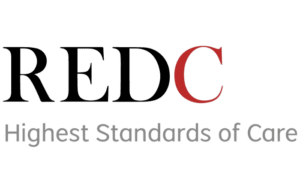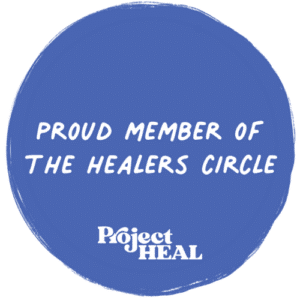Dealing with an eating disorder on your own can be very overwhelming. If you’re trying to take steps toward recovery and restoring nutrition, knowing where to start and how to proceed when it comes to meals can be challenging. In this case, a dietitian can help. A dietitian’s recommendations and guidelines are critical components of eating disorder treatments.
Who Should See a Dietitian if They Have an Eating Disorder?
Anyone with any type of disordered eating, who is looking to get help, can benefit from the aid of a dietitian. Believe it or not, reintroducing nutrients too quickly can cause some medical complications, known as refeeding syndrome. To minimize health complications, dietitians prescribe meal plans that ensure people living with eating disorders introduce nutrition safely for the body.
What Types of Eating Disorders Can a Dietician Help With?
They can help with all of them. Dietitians can help with anything that has to do with nutrition. They are trained professionals who are experts in food and nutrition and are authorized to treat specific conditions like anorexia, bulimia, binge-eating disorders, ARFID, and anything else that falls under the category of disordered eating.
Dietitians understand how the body works and how nutrition affects one physically. They work with eating disorder treatment teams to restore physical balance through nutrition in a safe way that won’t destabilize the body.
What Should I Expect from a Dietician During My Visits?
During the recovery process, it is essential to understand how food affects your body and how your meal plan will help you meet your goals. In addition to meal planning, a dietitian will provide nutrition counseling and education. The dietitian will give you all the information you need to learn about nourishing your body and the benefits of doing so, giving you the best chance of a successful recovery. They will also track your progress and decide when to change your nutritional plan.
During your visit, your dietitian will also provide understanding and support. Dietitians specializing in eating disorders have an in-depth knowledge of the unique emotional needs of individuals suffering from eating disorders and understand the behaviors surrounding meals and eating. They help you work on your behaviors and develop a better relationship with food.
How Can a Dietician Help Create a Meal Plan for Someone with an Eating Disorder?
A dietitian will calculate nutrients based on your needs to help you receive the nutrition you require daily. The meal plan they create for you will accommodate your personal needs and aim to stabilize your body to avoid the negative consequences of reintroducing nutrition.
The dietitian will involve you every step of the way. They will work with you to learn your food preferences, challenges, and fears to develop an individualized plan to help you succeed.
The dietitians at Aster Springs understand the unique needs of individuals suffering from eating disorders. They will work closely with the treatment team to provide comprehensive treatment in a safe and supportive environment. Find the location nearest you to begin your journey toward recovery today.
Resources
Cleveland Clinic. (2022, June 6). Refeeding Syndrome. https://my.clevelandclinic.org/health/diseases/23228-refeeding-syndrome
Cowden, S. (2022, June 28). How a Registered Dietitian Helps You With an Eating Disorder. https://www.verywellmind.com/eating-disorder-dietitians-an-overview-1138351
Author Bio:
Kate Delaney Chen, BSN, RN-BC is a healthcare writer and registered nurse with over 17 years of bedside experience. She specializes in Psychiatric Nursing and Nephrology and currently works at nationally recognized inpatient Eating Disorders Program.





